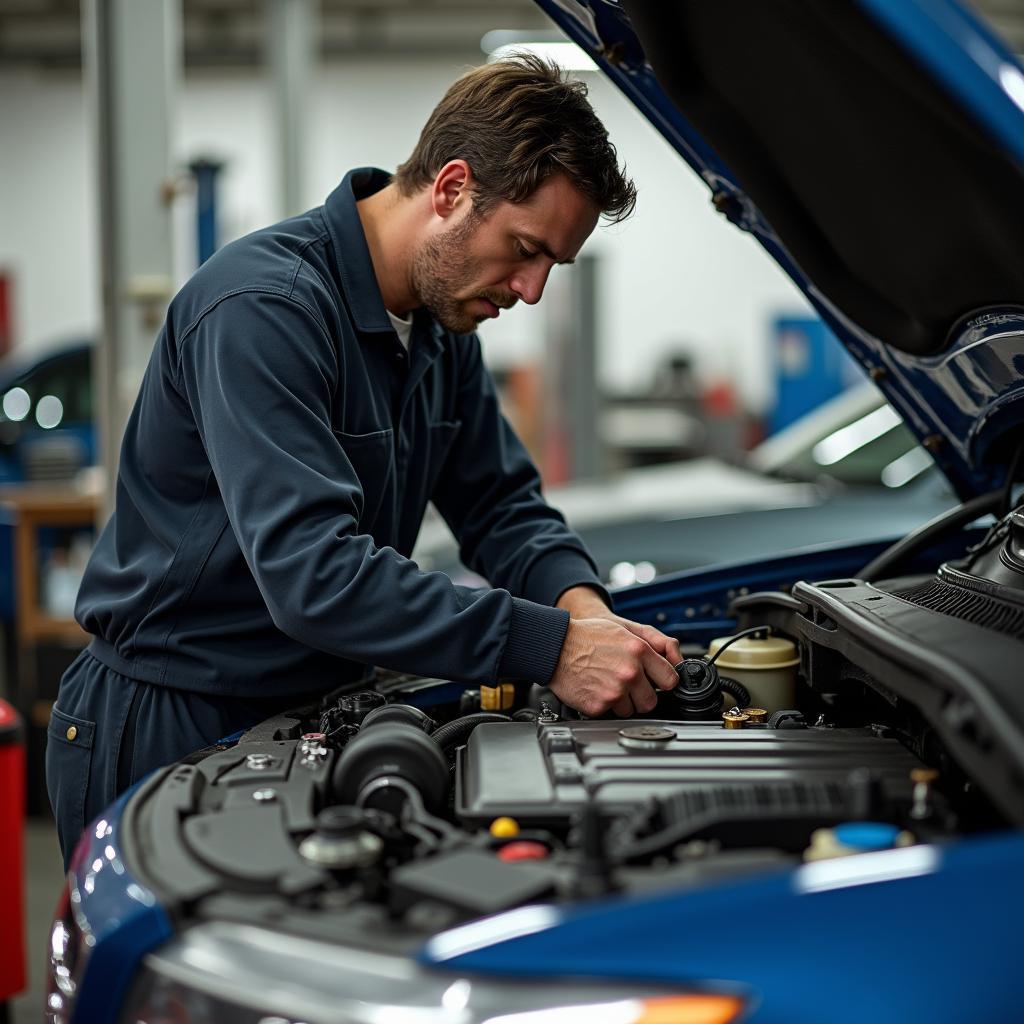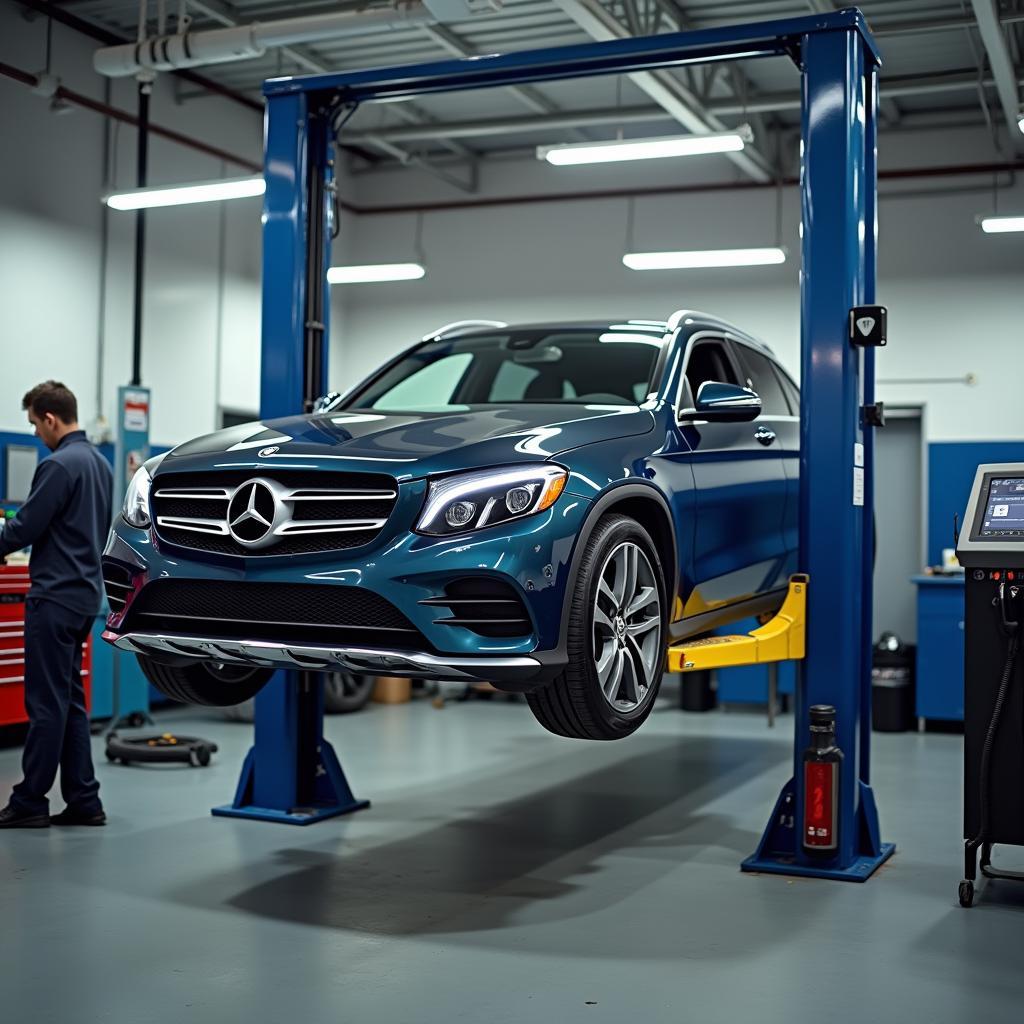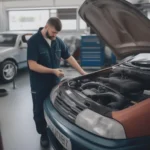The goodwill period is a term that frequently comes up in connection with repairs and warranties. But what exactly is behind this word? And what benefits does it offer you as a vehicle owner? In this article, you will learn everything you need to know about the goodwill period and why it can be relevant for you.
What Does the Goodwill Period Mean?
Basically, the goodwill period describes a timeframe during which a manufacturer or dealer voluntarily covers repair costs for a defective product – even though they are not legally obligated to do so. This means the legal warranty has already expired, but the manufacturer shows goodwill and covers the costs.
Imagine this: You own a vehicle whose warranty expired a year ago. Now, a defect in the alternator becomes apparent, which could have potentially occurred during the warranty period. In this case, the manufacturer might cover the repair costs out of goodwill, even though they are not legally required to.
 Car being inspected in a garage, illustrating a potential goodwill repair
Car being inspected in a garage, illustrating a potential goodwill repair
Why Does a Goodwill Period Even Exist?
The answer is simple: customer loyalty! A manufacturer who shows goodwill even after the warranty period has expired strengthens trust in their products and ensures satisfied customers. After all, a defect in a vehicle can quickly become expensive, and the manufacturer’s willingness to cover the costs leaves a positive impression.
“Goodwill is not a right, but a privilege,” says Dr. Markus Schmidt, automotive expert and author of the book “Everything About Vehicle Warranties.” “A manufacturer who grants goodwill shows that they stand behind their products and want to offer their customers real added value.”
What Should You Watch Out For Regarding the Goodwill Period?
The goodwill period is not legally regulated and can therefore vary from manufacturer to manufacturer. Generally, it depends on various factors, such as:
- Vehicle Age: The older the vehicle, the less likely the manufacturer is to cover the costs.
- Mileage: Kilometers driven also play a role. With high mileage, the probability of goodwill is lower.
- Maintenance History: Has the vehicle been regularly maintained, and were inspections carried out by a specialist workshop? A complete history increases the chances of goodwill.
- Type of Defect: Is it a material defect or a wear part? In the case of material defects, the probability of goodwill is higher.
 Car undergoing maintenance service in a workshop to ensure proper history
Car undergoing maintenance service in a workshop to ensure proper history
How Can You Increase Your Chances of Goodwill?
- Regular Maintenance: Have your vehicle regularly serviced and all inspections carried out at a specialist workshop.
- Use Original Parts: When making repairs, use only original manufacturer parts.
- Keep Invoices: Carefully keep all invoices and records of repairs and maintenance.
- Contact Your Dealer: In case of a defect, first contact your dealer and describe the problem.
Conclusion
The goodwill period is an important topic for vehicle owners. Although it does not constitute a guarantee, it can save significant money in case of a defect.
Do you have questions about the goodwill period or need assistance with processing a goodwill claim? Our experts at AutoRepairAid are always ready to assist you. Simply contact us via our website – we are happy to help!

